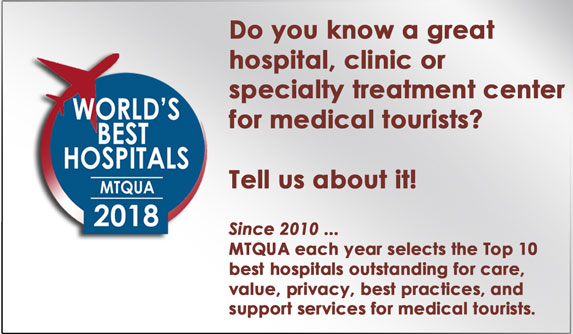 The article usually starts with a headline like “The TRUE cost of medical tourism.”
The article usually starts with a headline like “The TRUE cost of medical tourism.”
It foreshadows a tale of horror, a story about a medical treatment abroad gone bad. It’s a portrait of a hapless medical tourist suffering a medical complication.
Or it may be a survey of doctors who claim they have treated patients whose surgery has resulted in complications. In any case, it’s yet another admonition of Buyer, beware when purchasing medical travel packages.
The underlying assumption in these stories and surveys is that surgery abroad is unsafe and fraught with dangers for the unsuspecting medical traveler. When you have a bad outcome – and you assuredly will – it is a result of bad doctors, bad hospitals, or bad medicine.
What about bad medical tourists?
Truth be told, in analyzing several of the stories that paint the most unflattering picture of the medical tourism experience, one finds stories of the poor choices and poor decisions patients make. They are stories of non-compliant patients, not bad treatment.
If these poor choices and poor decisions result in the patient visiting an emergency room six weeks later because an incision has opened up or has become infected, the only thing the treating doctor sees is an anxious patient and a problem that needs to be addressed immediately. When asked how this happened, the hapless patient simply replies he or she had surgery abroad and THIS was the result.
Assumptions about global health care and medical tourism
The exposure of many doctors to, gasp, surgery abroad may be a trip with Operation Smile or other non-governmental organization to a desperately poor area of the world to treat cleft palates or glaucomas, or a donation in support of malaria control programs and other disease-related missions. Doctors are typically ignorant or naïve about the other side of global health care, the side that we in medical tourism see every day.
To doctors, THIS patient being treated as an emergency case is clearly an outcome of poor medical treatment.
That THIS emergency may have occurred because the patient ignored instructions about wound care or infection control given at the time of discharge by the surgeon, rarely seems to be considered.
Medical tourists are bad patients
Medical travelers are bad patients when:
- They do not follow properly issued post-surgery instructions.
- They accept instructions they don’t understand.
- They believe everything they read on the internet.
- They believe everything they read in chat rooms.
- They think they will get the same good outcomes as their friends.
- They don’t realize that most “agents” get commissions from hospitals and doctors.
- They truly believe their medical journey is a holiday.
- They think they can plan and manage their own medical journey even though they’ve never had surgery before.
Have you ever managed a bad medical tourist?

 >
>